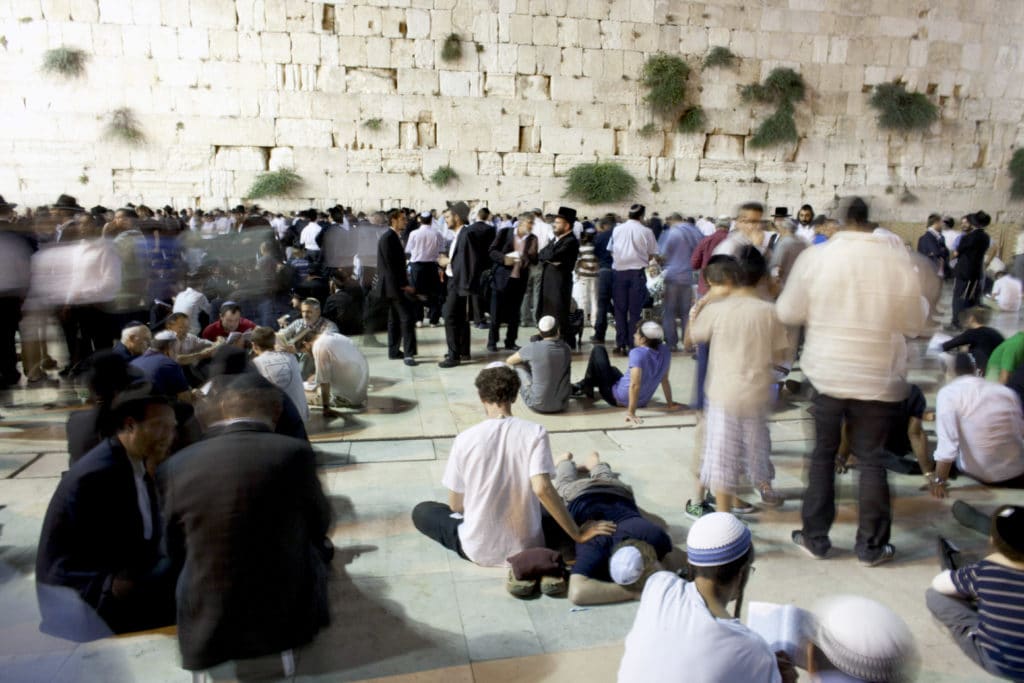Before we start today’s episode, I want to tell you that it’s going to talk about loss and grief. These are real and powerful parts of our lives, and it’s important that we explore them. And, they can touch a nerve. So please listen at a time and place where you feel equipped to dwell on these emotions.
My father died in December 2018. It was the third day of Hanukkah. He was 82. My dad had, thank God, lived a good life. He and my mother were married for 56 years. They had children and grandchildren (and now great-grandchildren).

And while it of course was dysfunctional like every other family, ours was a home filled with a lot of laughter and learning. Among other things, my dad was our Boy Scout troop’s Scoutmaster, and he was a consummate teacher.
Everyone goes through grieving a parent in their own way. One of the things I remember most about those days immediately following my dad’s death was the intensity of the emotions I felt.
Deep pain. Loss. Absence. Hot tears welling up at unexpected moments. My face and body feeling a unique kind of exhaustion, a level of brokenness that’s hard to put into words. I had never really experienced that intensity of grief before.
Besides the institution of Shabbat, our mourning practices may be the greatest gift the Jewish people has given to the world. The practice of sitting shiva, being visited by guests for a week and sharing stories and memories and prayers with friends and family and community — it was enormously comforting for me.
Besides the institution of Shabbat, our mourning practices may be the greatest gift the Jewish people has given to the world.
The practice of going to synagogue to say kaddish every day for the next 11 months gave me an anchor at a time when my life felt like it came unmoored. And every year, on my dad’s yahrtzeit, the anniversary of his death, I feel like I reconnect with that grief in a way that grows a bit sweeter year by year.
This episode of our show comes at the lowest point on the Jewish calendar, as we observe the holiday of Tisha B’Av, the ninth of the Hebrew month of Av. It is a day of collective mourning, of anguish and grief and sadness. Historically, Tisha B’Av is the day on which the Temple in Jerusalem was destroyed — not once, but twice, in ancient times.

Both of these moments of destruction were events of national pain and convulsion, symbolizing a loss of control, an exile from home, and a feeling that the light had gone out in the world.
If you take the individual pain I experienced with the loss of my father, and you then wrap that up in a collective kind of trauma and suffering where everyone is feeling and sharing the grief — that’s the kind of day Tisha B’Av is meant to be.
I’ve talked before about how important it is to name the emotions we feel, to not suppress them or pretend like they’re not there. Our feelings are real, and letting ourselves sense them is really important.
One of Judaism’s insights with Tisha B’Av is that we can benefit from a day on which we touch in with the deep pain that so often lives beneath the surface. We shouldn’t dwell in it forever, but we also shouldn’t fast forward through it. We should give it a container, a day — to feel sadness, to feel loss, to feel being totally and utterly broken.
Why? Because that brokenness is the beginning of a journey to healing and renewal. Exactly seven weeks after Tisha B’Av we celebrate Rosh Hashanah, starting a new year and beginning the period of our fall holidays. We’ll explore that journey together in the coming weeks.
But Tisha B’Av really marks the beginning — as it has to. A journey of healing and renewal has to begin with being honest about pain and suffering.
Years ago Rabbi Alan Lew wrote a book about this period, called “This is Real and You Are Completely Unprepared.” Some folks read it every year as part of their preparation for this period.
Rabbi Lew imagines Tisha B’Av as someone offering us some advice: He writes, “Life bets that we won’t be willing to endure the suffering it requires. Life bets that we will try to shut out the suffering, and so shut out life in the bargain… Tisha B’Av has a hot tip for us: Take the suffering. Take the loss. Turn toward it. Embrace it. Let the walls come down.”
So the practice for this week is in two parts. First, find some time and space where you can get quiet enough to feel what’s really going on inside you.
You can use any number of the practices we’ve talked about on previous episodes: Meditation, journaling, the hitbodedut or talking out loud practice we shared a couple of weeks ago. Whatever it is, make some time for it.
Then you can plug in the second part, which comes from a series of questions Rabbi Lew asks in his book: “Where are you? What transition point are you standing at? What is causing sharp feeling in you, disturbing you, knocking you a little off balance? Where is your suffering right now? How long will you keep the walls up?”
Give yourself some time and space to let yourself really dwell in these questions. Any number of things might come up — about a relationship, a job, a community, an identity. Let them come up. Let the walls break. Let yourself feel sad if that’s what you’re feeling. Don’t fight it. Get clear.
Because from that clarity you can begin a journey — a journey of rediscovery, a journey of renewal. It’s a journey we’ll take together over the coming weeks.
Blessings for that journey. I hope you’ll join us next time.